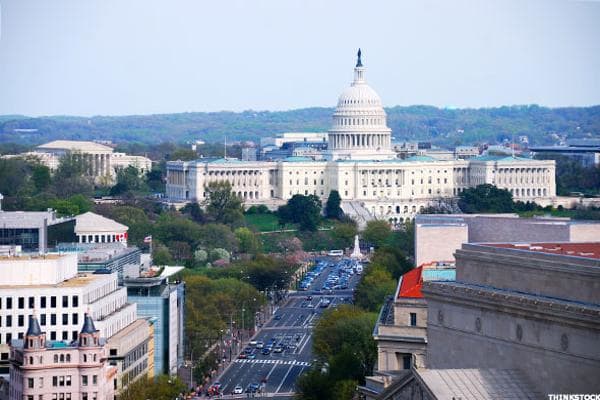
It’s election day in the United States.
Midterms are a driving headline for the market as investors plot out what to expect from Washington D.C.
Ross Mac of Maconomics explained how the market tends to react following a midterm election.
“Historically, since 1950, the average return for the S&P 500 in the 12 months after a midterm election is about 15%. Economists and early polls are pointing to Republicans winning at least one chamber of Congress, which would lead to a sort of gridlock in Washington. Investors would actually like this because it would slow down new spending, which would be good for rates and Treasury supply,” he said.
View the original article to see embedded media.
Jeffries looked at historical data since 1934 and concluded that the market performance, between three and six months after elections, tends to be positive. However, the market is still carefully watching for more signals from the Federal Reserve on its tightening plans as well as gauging economic data to deduce how the overall economy is faring.
But Jeffries isn’t the only one to see potential positives after voters take to the polls. Morgan Stanley’s Mike Wilson also sees the midterm elections as a catalyst for the market.
“We remain tactically bullish on U.S. equities, assuming longer-term interest rate levels begin to fall. This week's midterm elections provide a potential catalyst in that regard. If the Republicans win decisive control of both the House and Senate, as some polls and betting markets are suggesting. Because this is purely a tactical trading view and not in line with our core fundamental view which remains bearish, we will remain disciplined on how much leash to give it,” he explained on a podcast for Morgan Stanley.
Outside of midterms, there’s another catalyst that investors should be watching this week and that’s the Consumer Price Index. Wilson noted that the data could indicate “both interest rate and equity volatility will remain high.”
There is one certainty in all of this, and that is that Wall Street has historically loved gridlock in D.C.
Real Money Contributor Stephen Guilfoyle wrote, “history does show that financial markets tend to do better when at least one chamber of the legislature is controlled by the opposition party. Gridlock has tended over the years to outperform unified government.”
With investors focused on the Fed’s next steps, understanding what to expect from D.C. could ease some market anxiety.







